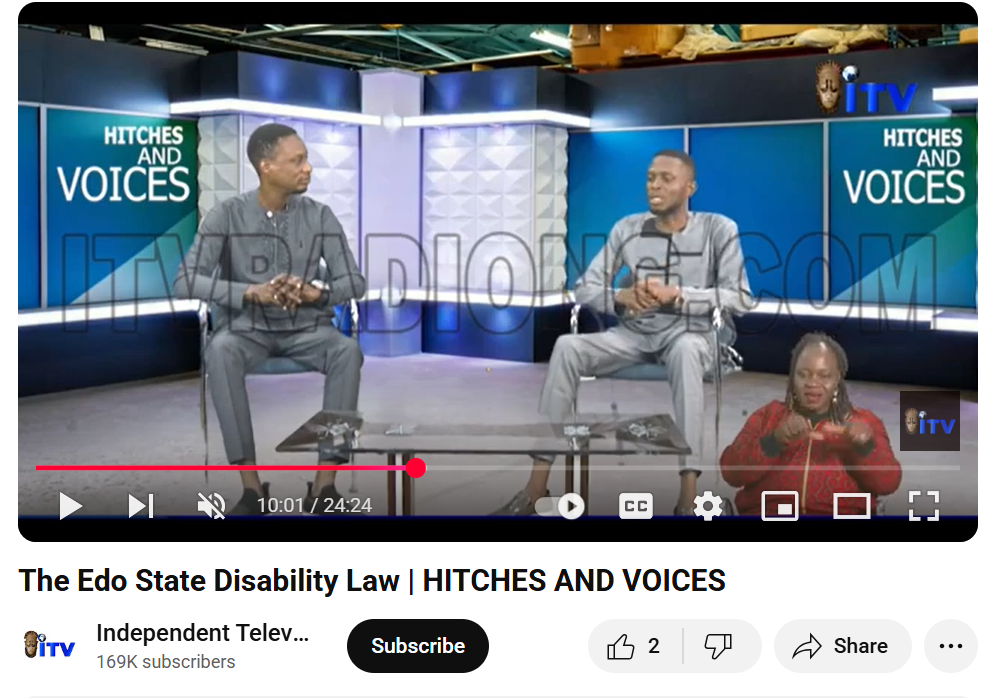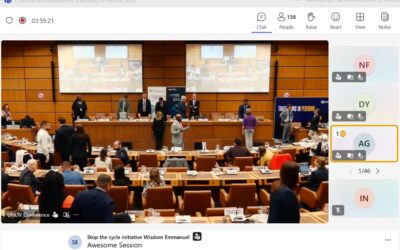
On the July 2025 edition of Hitches and Voices, guest Mr. Isaac Noble emphasized that the Edo State Disability Law is only meaningful when it is fully implemented, carefully monitored, and strictly enforced. He explained that the true test of any legislation lies not in its passage but in its impact on the daily lives of those it seeks to protect. Without consistent application, the rights promised in the law remain distant and ineffective.
Mr. Noble noted that the Edo State Disability Law should not just exist as words on paper but must be actively applied in practice through clear actions and policies. To achieve this, the commission set up by the Edo State Government to drive its implementation must be empowered and supported. He stressed that this responsibility does not rest on the government alone. Civil society organizations, non-governmental organizations, and community groups also have a role to play in strengthening the commission’s work, providing oversight, and ensuring accountability at every stage. When all stakeholders collaborate, the law becomes a living instrument rather than a dormant document.
He further explained that civil society groups, who played a major role in advocating for and pushing the law’s passage, must continue to stay involved in its progress. Their responsibility goes beyond advocacy; it extends to monitoring how the law is applied, raising awareness among citizens, and drawing attention to lapses in implementation. According to him, civil society must remain a strong voice, holding the commission accountable and ensuring that disability rights are not sidelined. Their role also includes pressing for these rights to be mainstreamed into all government programs and policies across the state so that inclusion is not treated as a separate agenda but as part of every area of governance.
Mr. Noble highlighted that the Edo State Disability Rights Law 2022 was carefully designed to protect the dignity and rights of persons with disabilities by setting standards for equal access, non-discrimination, and social inclusion. However, he cautioned that gaps in implementation or neglect in enforcement directly harm PWDs. Every delay or failure to apply the law means that individuals are denied opportunities in education, employment, housing, and participation in community life. This makes proper enforcement not just important but urgent, because without it, the law cannot fulfill its purpose of creating an inclusive society where the rights of PWDs are respected in practice.
please to read more, click on this…



